Review: Nashville Shakespeare Festival's JULIUS CAESAR Serves Up Political Intrigue at its Best
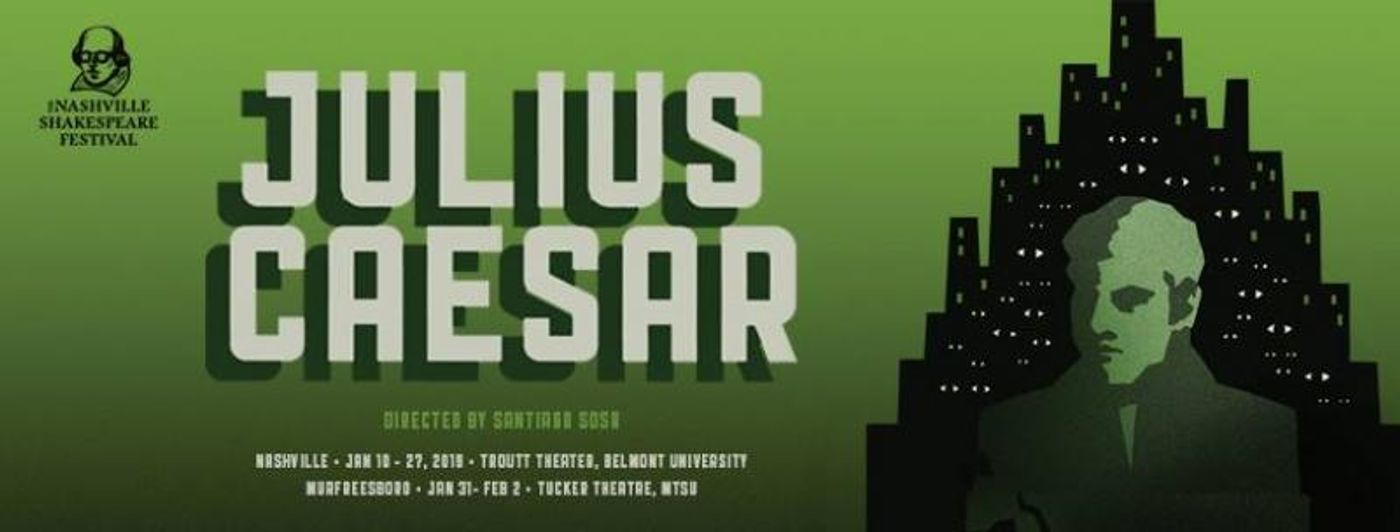
As the century was about to turn when Shakespeare first unveiled his tragic masterpiece, Julius Caesar - it's believed to have been written around 1599 - epoch-defining turmoil was afoot in Britain as worries mounted about who would succeed the aging virgin queen on the throne upon her demise. Thus, all the political intrigue and conspiratorial backbiting of Elizabeth I's reign no doubt proved fertile enough to inspire Shakespeare's epic tale of the assassination of the Roman leader.
In 2019, Julius Caesar remains a potent and compelling drama, particularly in light of the current political tenor of the times in which we live, and director Santiago Sosa and his creative team of artists from Nashville Shakespeare Festival prove that very point with a production of the play (featuring a stunning cast of players bringing each character to life with vivid commitment and impressive focus) that succeeds on every level, with some moments of brilliance that transcend expectations.
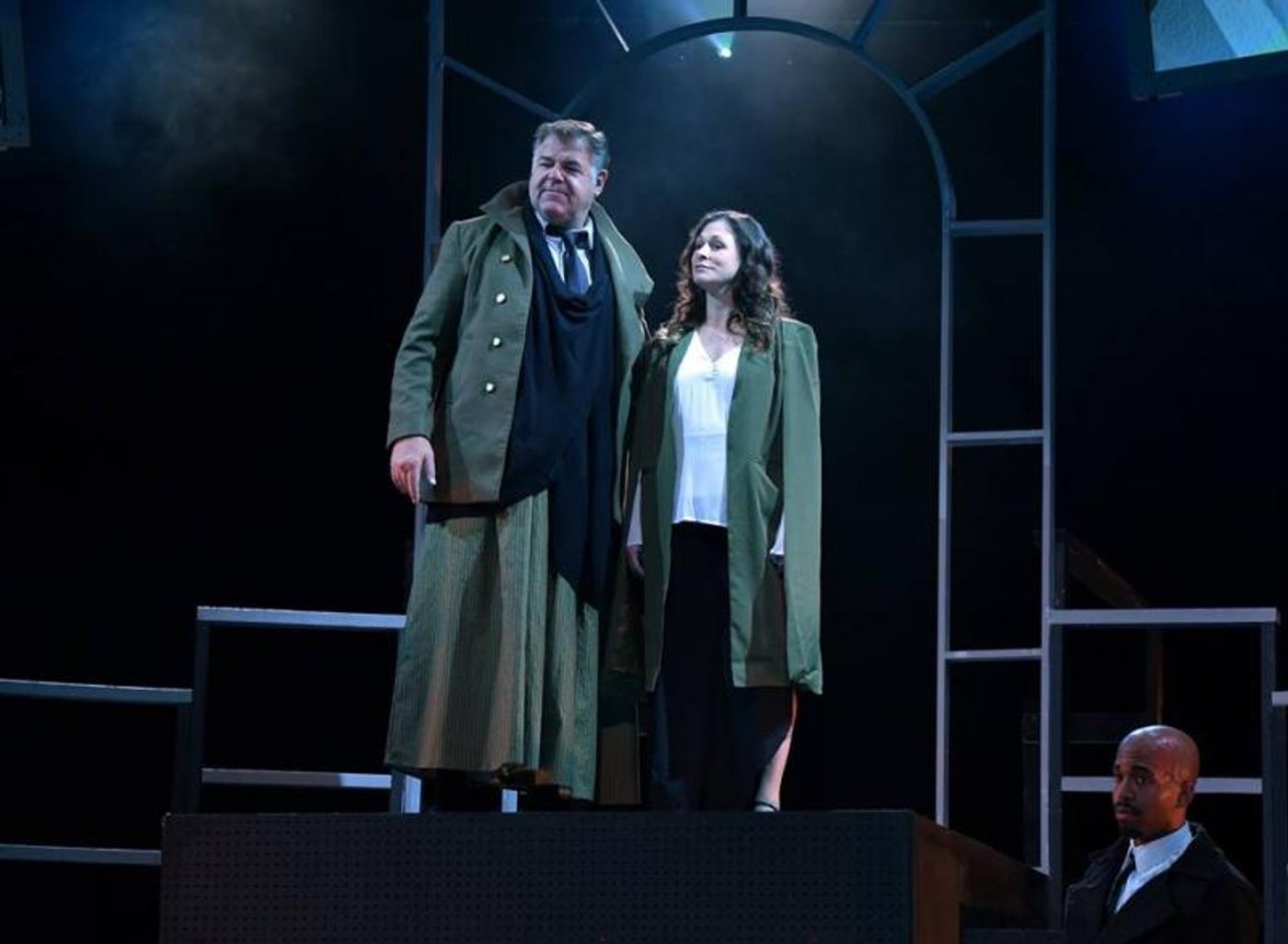
Set amid a gorgeously appointed physical production that in itself is worth the price of a ticket - Phillip Franck's impressive set and lighting design, Sam Lowry's awe-inspiring projections that set the sometime ominous tone, Sosa's exquisitely designed costumes and Natalie Bell's superbly crafted musical score that adds to the suspense of the proceedings in Caesar's court - NSF's current revival of Julius Caesar demands to be seen, to be appreciated and, perhaps most importantly, to be savored for the rich drama at its very core.
By approaching the material from a unique perspective, Sosa proves himself unwilling to mount a more literal, modern-day - and we daresay, pedestrian - model of Julius Caesar: There are no shout-outs, or even veiled references for that matter, to one particular, latter day despot currently residing in the people's house in Washington, D.C. (although we may surmise that projections of newspaper headlines created to advance the plot are indeed reflective of "fake news," circa 8th century A.D.). Instead, the audience is given license to view the tale and to absorb its many parallels to 21st century politics through their own individual lenses.
As a result, NSF's Julius Caesar isn't heavy-handed or melodramatic - far from it, in fact, even if it is written that way - thanks to a refreshing interpretation which is far from manipulative and instead seems respectful of its audience's intelligence. If the purpose of theater is to provoke thought and elicit a reaction, Julius Caesar wins the day.
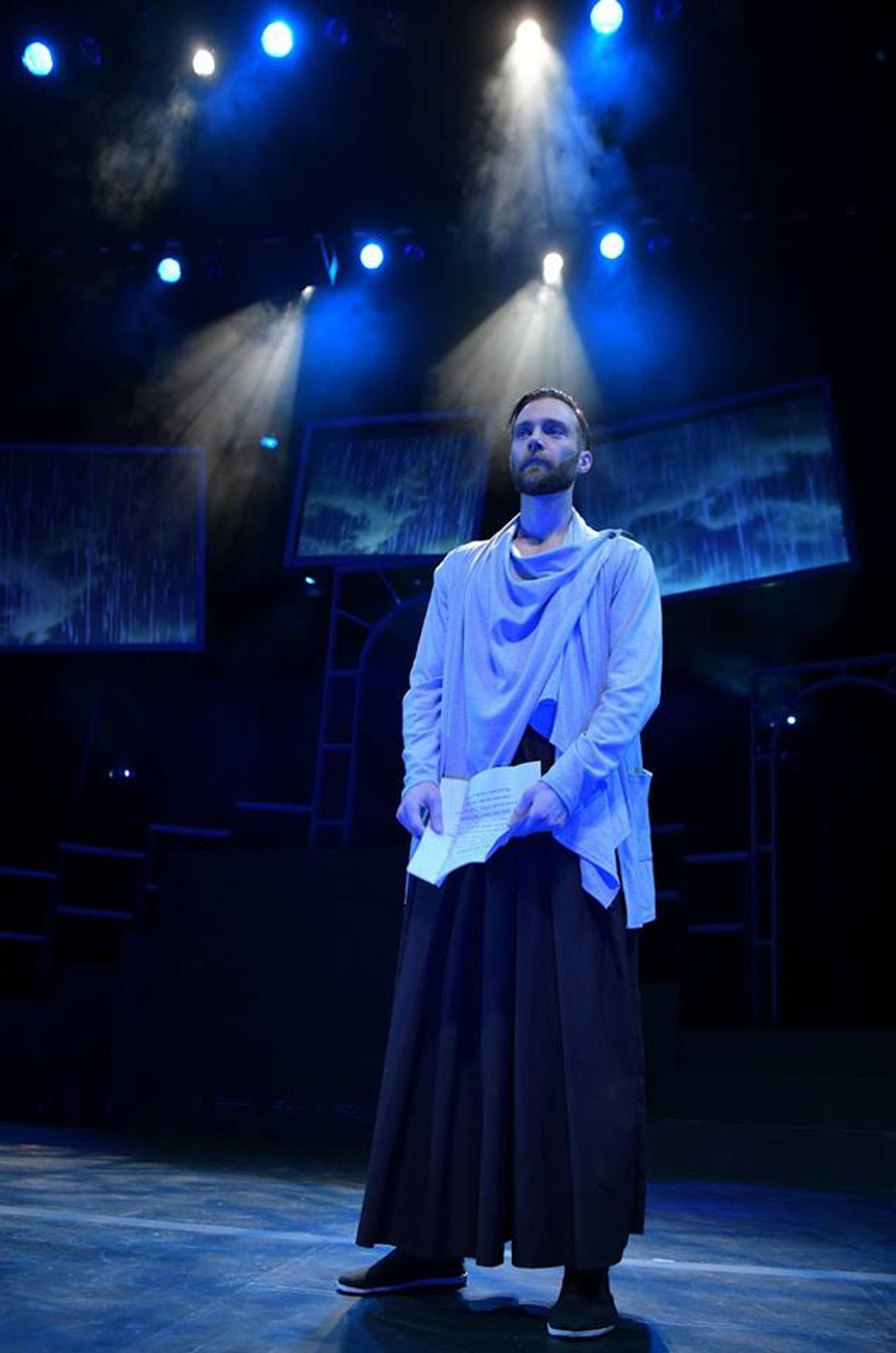
Sosa's creative vision is evident in every aspect of the play, whether it's his pitch-perfect casting or attention to detail for each garment worn by the extraordinary characters (should this whole theater thing not work out, perhaps Sosa has a future in fashion design, truth be told; if so, expect a lot of asymmetrical hemlines and militaristic coats and jackets, worn atop palazzo pants for men, to be de rigueur for the fashion-conscious in seasons to come) and that may be what sets this particular Julius Caesar apart from others we've seen - even NSF's last stab at the work in 2012.
The director's visual concept for the production ensures a contemporary style that further expounds upon the timeless themes found in Shakespeare's play (written, if you will recall from previous paragraphs, more than four centuries ago) and underscores the universality of the tale, whether one was on hand for its premiere back in the day or watching it for the first time this weekend. Furthermore, Sosa and his cohort of artists deliver a modern interpretation that somehow remains faithful to the revered text while making it as current as this very moment. As a result, the impact of this Julius Caesar remains in the forefront of one's imagination hours, even days, past the final curtain.
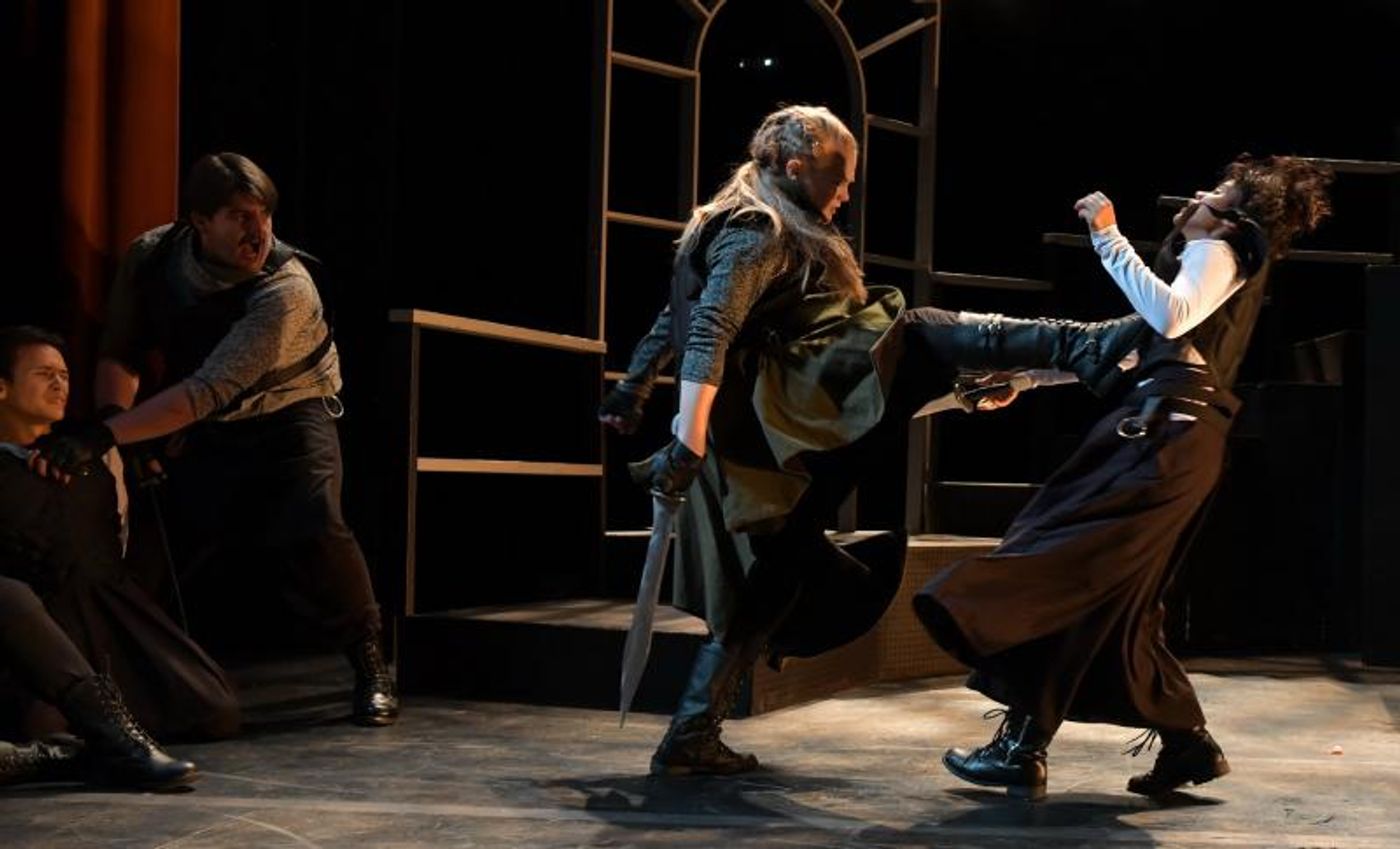
Sosa's deft directorial hand and sharp focus keep the play's action moving at a near-cinematic pace, engaging imaginations at every turn with his aforementioned attention to detail and allows the tremendous talents of his estimable band of actors to be shown to full effect.
Christopher Joel Onken leads the cast as the calculating Brutus, infusing his character with humanity that prevents him from becoming a stereotypical dramatic villain. Onken effectively displays Brutus' inner turmoil with a finely modulated performance and his physical presence - he looks remarkably like photos of Tsar Nicholas II with his beard and military tunic, which takes the story into another surprising political realm all its own - keeps all eyes riveted on him.
Likewise, Sam Ashdown, who last season dazzled audiences with his portrayal of Hamlet, plays Mark Antony with a lighter touch, presenting him as an affable playboy who manages to establish his own leadership bona fides with confidence in the aftermath of Caesar's assassination.
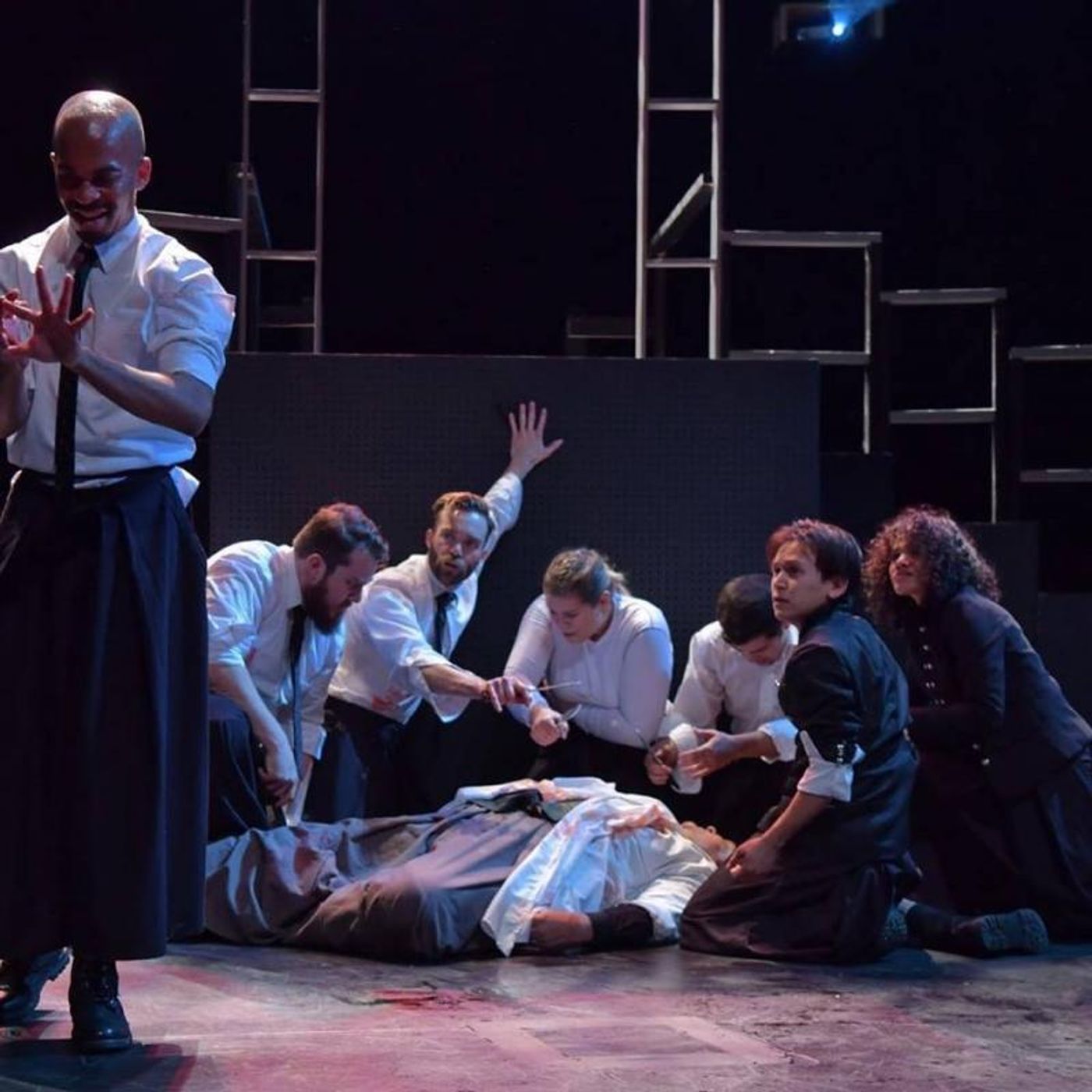
Broadway veteran Chuck Wagner, cast in the title role, cuts a dashing figure himself, commanding the stage with his tremendous presence and exuding the indefinable qualities that make someone, whether they are in politics or entertainment, a star. Wagner's Caesar fairly radiates charisma, allowing his imperious nature to be seen as something to emulate, rather than something to deride or to fear.
Among the remainder of Sosa's estimable ensemble, Morgan Davis is impressive in her all-too-brief turn as Octavius Caesar, who returns to Rome to avenge the death of her uncle - a challenge that allows for some impressive swordplay and hand-to-hand combat between Davis and Miranda Pepin (as Casca). Certainly, their scene is thrilling because of the theatricality of the fight choreography (credited to Eric Pasto-Crosby and Sosa), but also due to the rare sight of two female actors engaging in such swashbuckling hijinks onstage.
Jordan Gleaves gives a strong reading in the role of Cassius, while Antonio P. Nappo's physical presence is ideal for Decius Brutus and young Chamberlin Little is effective as Brutus' loyal servant Lucius. Melinda Sewak is fine as Portia, while Angela Madaline-Johnson proves the perfect Calpurnia to Wagner's Caesar.
Julius Caesar. By William Shakespeare. Directed by Santiago Sosa. Presented by Nashville Shakespeare Festival. At The Troutt Theatre, Bemont University campus, Nashville. Through January 27. (The production moves to Murfreesboro and Middle Tennessee State University's Tucker Theatre for performances January 31-February 2). For further information, go to www.nashvilleshakes.org. Running time, 2 hours, 25 minutes (with one 15-minute intermission).
photos by Rick Malkin
Reader Reviews
Videos

